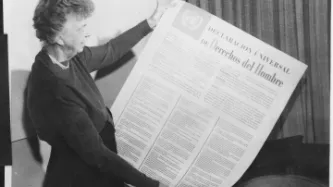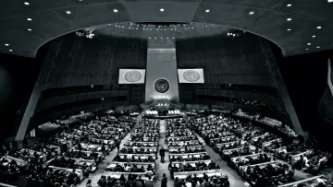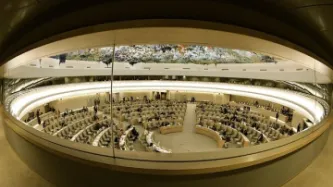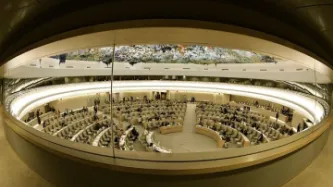Search
Content type: News & Analysis
On 24 October 2019, the Swedish government submitted a new draft proposal to give its law enforcement broad hacking powers. On 18 November 2019, the Legal Council (“Lagråd”), an advisory body assessing the constitutionality of laws, approved the draft proposal.
Privacy International believes that even where governments conduct hacking in connection with legitimate activities, such as gathering evidence in a criminal investigation, they may struggle to demonstrate that hacking as…
Content type: News & Analysis
This week will see the right to privacy take center stage at the UN in Geneva.
The UN Special rapporteur on the right to privacy will present his first report to the UN Human Rights Council on Wednesday 9 March. Meanwhile the Human Rights Committee will review the records of surveillance and the right to privacy of South Africa and Sweden among others.
The new Special Rapporteur on the right to privacy
A year ago the Human Rights Council established the mandate of the Special…
Content type: News & Analysis
The focus on the right to privacy continues at the United Nations, with Kenya, Turkey, and Sweden being recently challenged over their surveillance practices during the Human Rights Council's Universal Periodic Review of States' human rights records.
The explicit mention of the right to privacy in recommendations submitted by Slovenia and the Netherlands during the review of Sweden, in the recommendation by Estonia during Turkey's review, and Liechtenstein's recommendations to…
Content type: News & Analysis
What do Egypt, Kenya, Turkey, Guinea, and Sweden have in common? Despite having a Constitutional right to privacy, they are adopting and enforcing policies that directly challenge this human right.
These states are also up for a Universal Periodic Review this year before the United Nations Human Rights Council. UPRs are a mechanism within the Council aimed at improving the human rights situation in all countries and address human rights violations wherever they occur.
Despite having…
Content type: Advocacy
What do Egypt, Kenya, Turkey, Guinea, and Sweden have in common? Despite having a Constitutional right to privacy, they are adopting and enforcing policies that directly challenge this human right.
These states are also up for a Universal Periodic Review this year before the United Nations Human Rights Council. UPRs are a mechanism within the Council aimed at improving the human rights situation in all countries and address human rights violations wherever they occur.
Despite having…
Content type: News & Analysis
At the first major discussions on internet governance since the Snowden leaks began in June 2013, Sweden’s Foreign Minister has called for the establishment of principles to define the application of existing human rights obligations to the digital realm.
Noting that the Snowden revelations have given birth to “a new debate about surveillance and privacy”, Foreign Minister Carl Bildt acknowledged that internet governance is being challenged, as some States operate vast surveillance…





